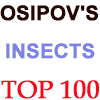Actias chrisbrechlinae
|
|
Updated as per personal communication with Ronald Brechlin, February 2008
Updated as per personal communication with Victor Sinyaev, (Guanxi and Yunnan), February 2008
|
Actias chrisbrechlinae
Brechlin, 2007

Actias
chrisbrechlinae male, Guanxi and Yunnan, China,
courtesy/copyright Victor Sinyaev
.
This site has been created by
Bill Oehlke at oehlkew@islandtelecom.com
Comments, suggestions and/or additional information are welcomed by Bill.
TAXONOMY:Superfamily Bombycoidea, Latreille, 1802
Family: Saturniidae, Boisduval, [1837] 1834
Subfamily: Saturniinae, Boisduval, [1837] 1834
Tribe: Saturniini, Boisduval, [1837] 1834
Genus: Actias, Leach, 1815
| |
MIDI MUSIC
"Moon River"
copyright C. Odenkirk
MIDI CITYON.OFF
<bgsound src="moon.mid" LOOP=FOREVER>
|
DISTRIBUTION:
Actias chrisbrechlinae
(wingspan: males: 87-88mm; females: )
flies in Yunnan Province, China, at
elevations around 1950-2460m.
Victor Sinyaev indicates it can also be found in Guangxi, China.
Franz and Julian Renner sent me images of this, at the time, undescribed species,
referring to it as "vivian".
It has now been officially described and named
Actias chrisbrechlinae, as per personal communication
with Dr. Ronald Brechlin.
Actias chrisbrechlinae belongs in the Actias felicis group, comprised of the following species:
Actias felicis felicis, China: Jiangxi; Guangdong; Guangxi; Sichuan
Actias felicis arianeae, China: Shaanxi: Qin Ling Mountains, Fopin (1800m)
Actias uljanae: China: Hunan: Nanling Mts., 1500 m., Mt Shikengkong.
Actias chrisbrechlinae, China: Yunnan; Guangxi; 1950-2460m
Actias winbrechlini, China: northwestern Yunnan: Fengshuining Mountains (2460m), Yulong County;
northern Myanmar = Burma: Kachin: Chudu Mountains (3000m)
Actias neidhoeferi, Taiwan; possibly eastern China
Actias kongjiaria, China: Sichuan: Gongga Shan; 2600-3200m
Actias vanschaycki, China: Sichuan, southwest of Heishui; 3100m
Actias shaanxiana, China: Shaanxi: Tai Bai Shan Mountains; Daba Shan Mountains; 1500m.
With the exception of Actias felicis felicis, Actias chrisbrechlinae and Actias uljanae the moths in this group seem devoid of a forewing pm
line, and are an almost uniform pale green, without yellow or pink in the hindwing tails.
The forewing pm line is thin and regularly dentate in the specimens mentioned above.


Actias chrisbrechlinae male HT, Fengshuining Mountains,
Yunlong County, Yunnan, China,
2460m, May-June, courtesy/copyright
Ron Brechlin.

Actias chrisbrechlinae AT, Fengshuining Mountains,
Yunlong County, Yunnan, China,
2460m, May-June, courtesy/copyright
Ron Brechlin.
FLIGHT TIMES AND PREFERRED FOOD PLANTS:
Dr. Brechlin reports a flight in May-June. There may or may not be other flights.
Franz Renner reports "Actias
chrisbrechlinae larvae feed on Larix, Picea or Pinus."
ECLOSION, SCENTING AND MATING:
Females extend a scent
gland from the posterior tip of the abdomen to
call in night-flying males.

Actias chrisbrechlinae
fifth instar,
courtesy/copyright Franz and Julian
Renner.
Franz Renner writes, May 30, 2007, "We have got eggs from an
undescribed species of the genus Actias. The
Chinese entomologist named this species "vivian". The species belongs
to the "Actias-felicis-group". The larvae are similar to
Actias felicis,
but the imagines are very different from Actias felicis.
I had success rearing this rare species and Julian was very
busy and has made some excellent photos. As attachments we send you
the pictures of our work."
EGGS, LARVAE, COCOONS AND PUPAE:

Actias chrisbrechlinae
first instar,
courtesy/copyright Franz and Julian
Renner.

Actias chrisbrechlinae
second instar,
courtesy/copyright Franz and Julian
Renner.

Actias chrisbrechlinae
third instar,
courtesy/copyright Franz and Julian
Renner.

Actias chrisbrechlinae
fourth instar,
courtesy/copyright Franz and Julian
Renner.

Actias chrisbrechlinae
fifth instar,
courtesy/copyright Franz and Julian
Renner.
Larval Food Plants
It is hoped that this alphabetical listing followed by the common
name of the foodplant will prove useful. The list is not exhaustive.
Experimenting with closely related foodplants is worthwhile.
Larix .......
Picea
Pinus
|
Larch/Juniper/Tamarack
Spruce
Pine
|
Use your browser "Back" button to return to the previous page.
Goto Asian Pacific Saturniidae Directory
Goto Main Saturniidae Index

| 
Support this website and visit other insect sites by
clicking flashing butterfly links to left or right.
|

|











